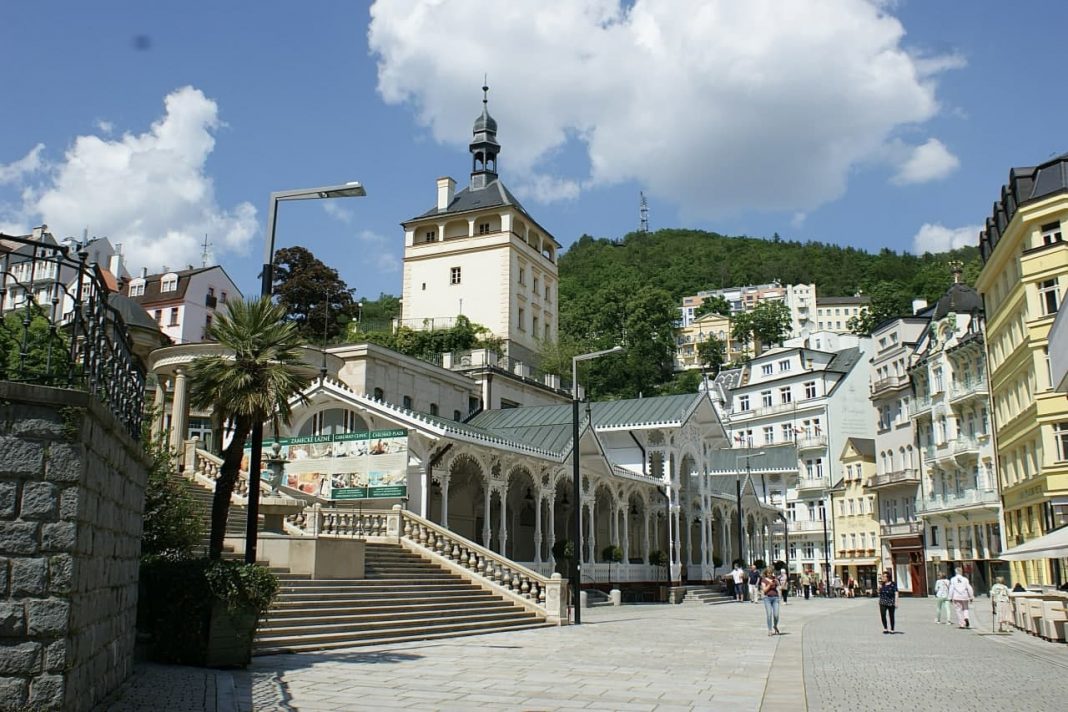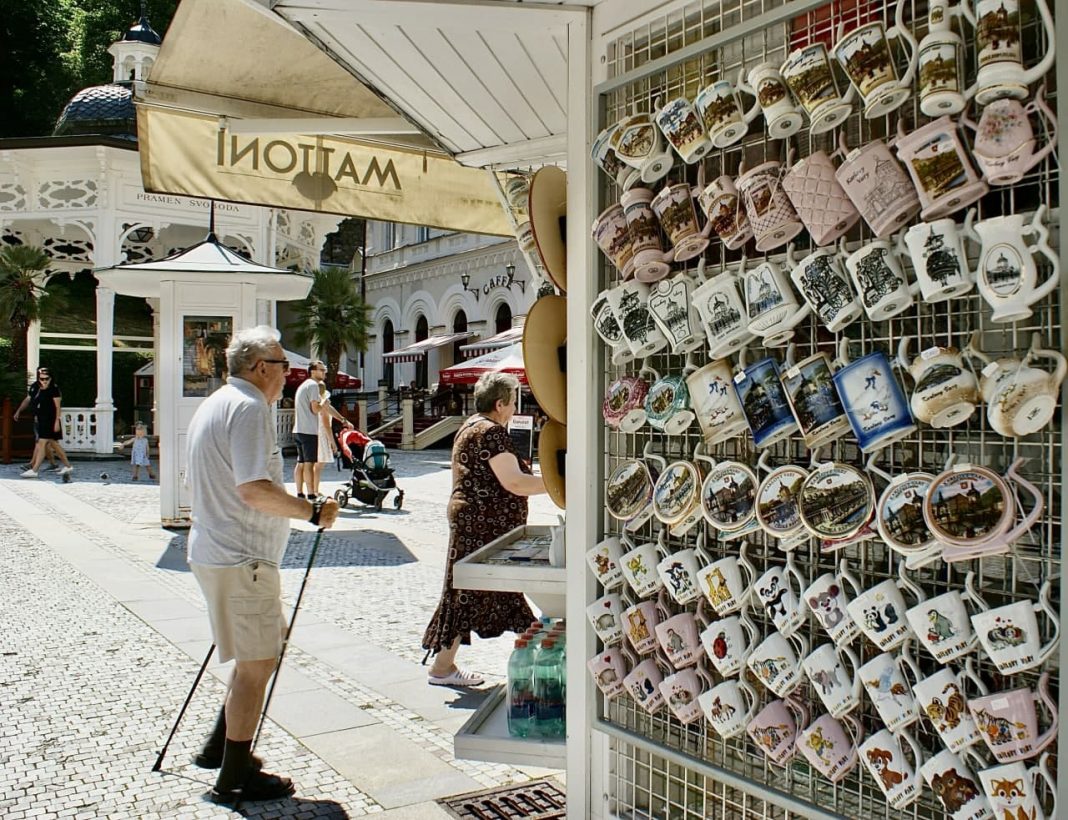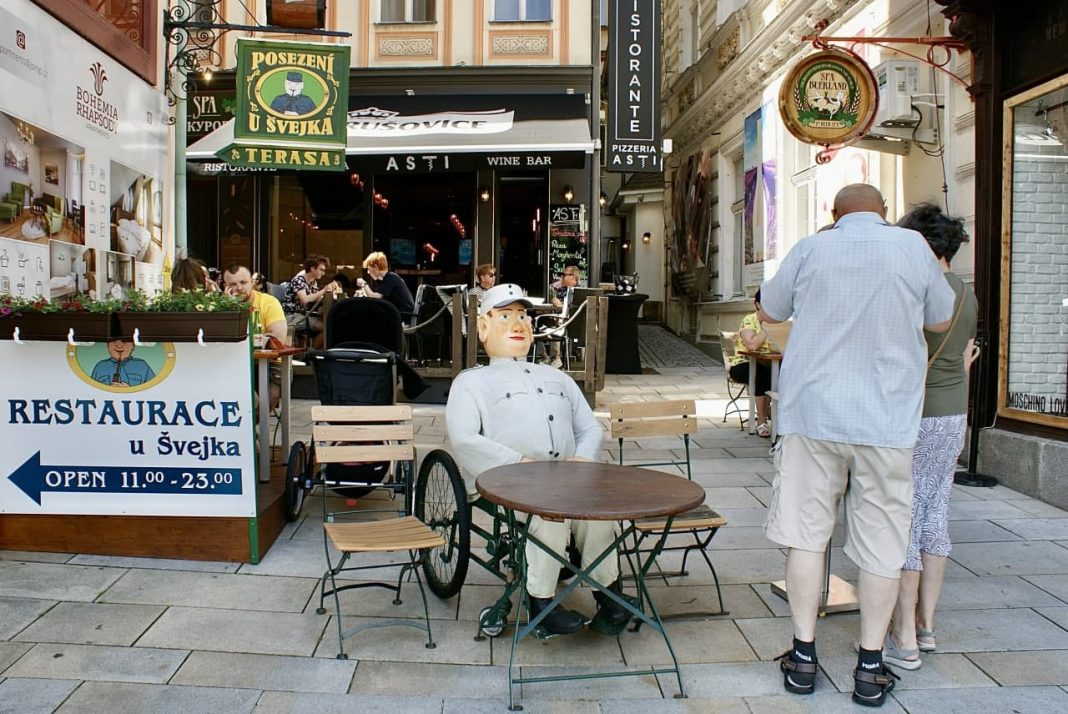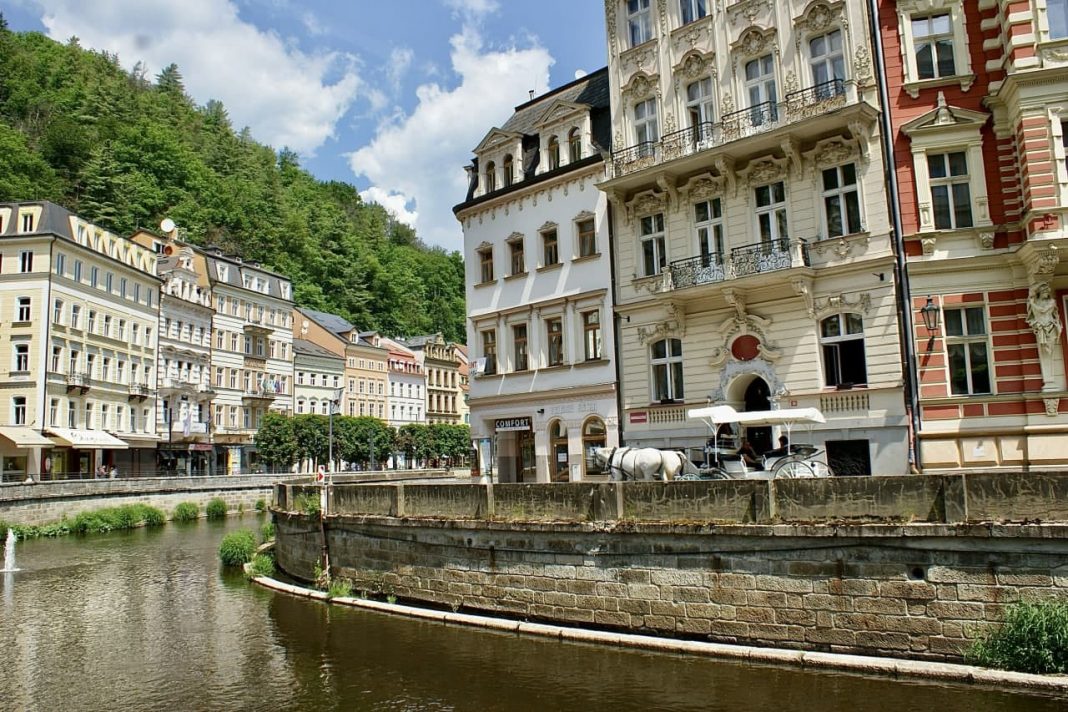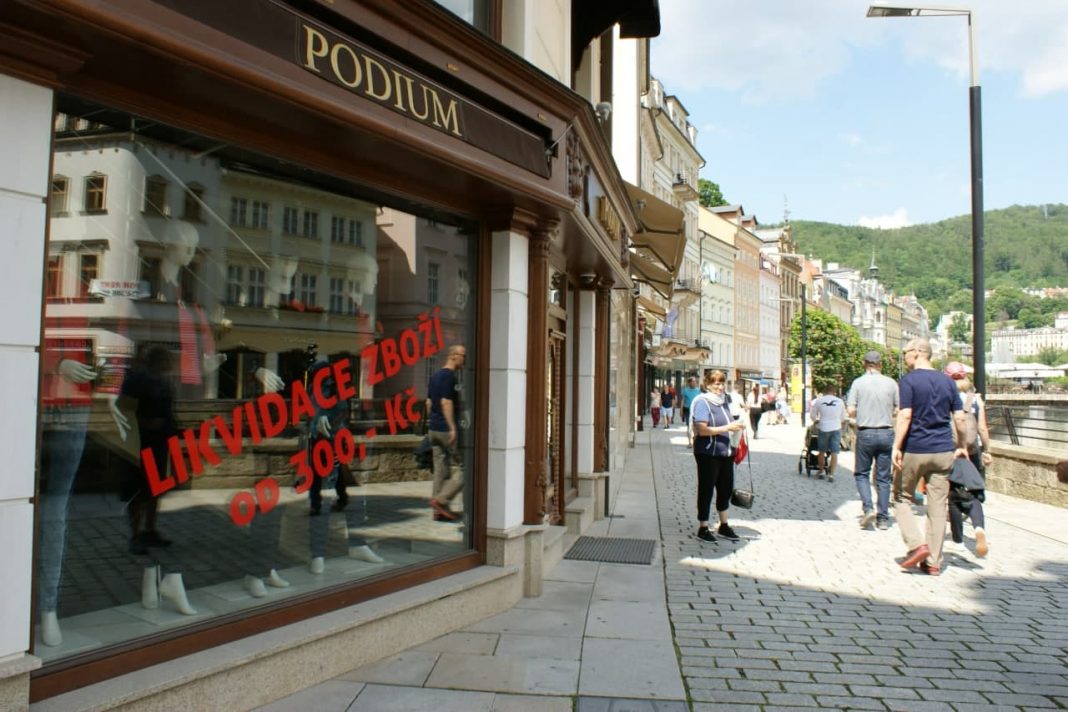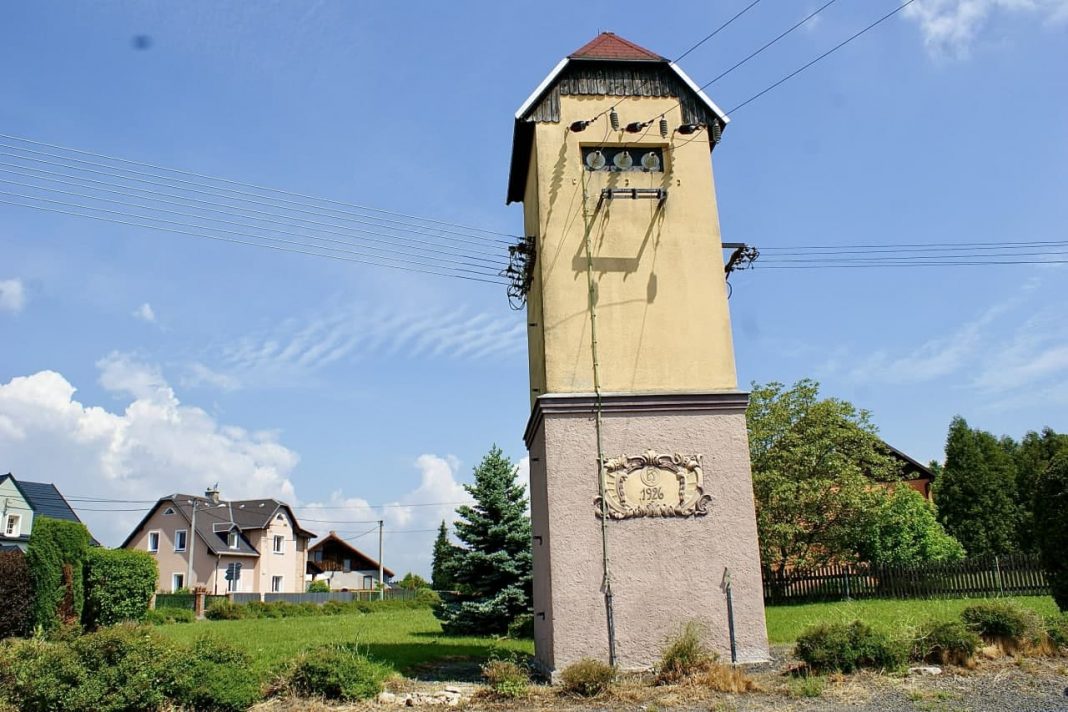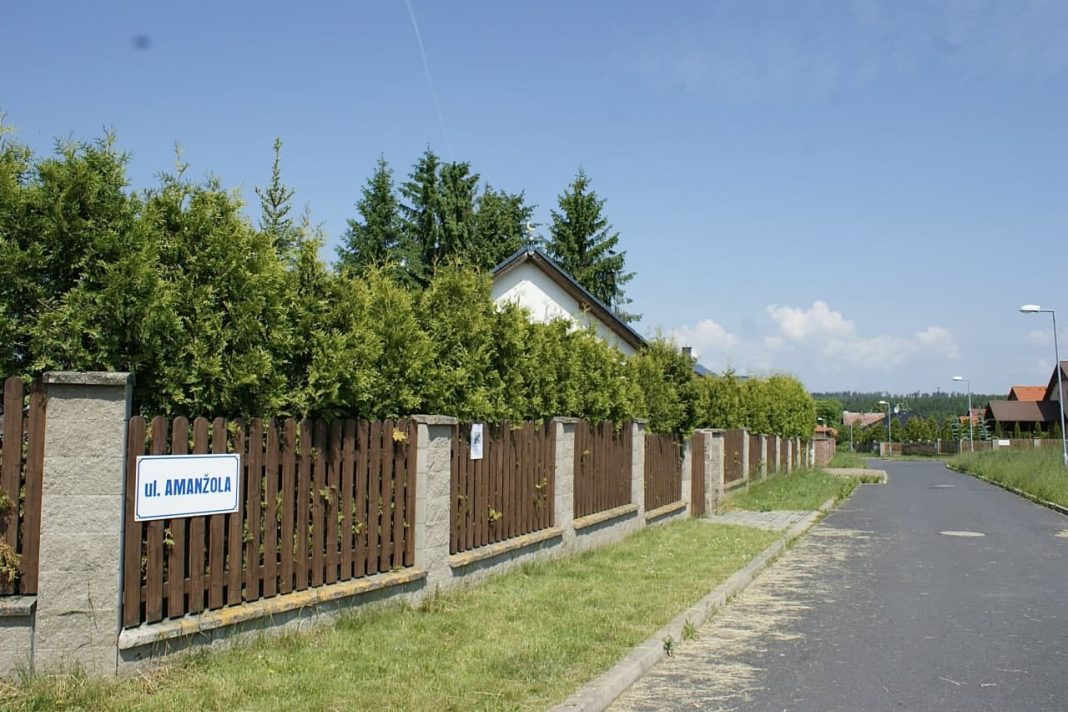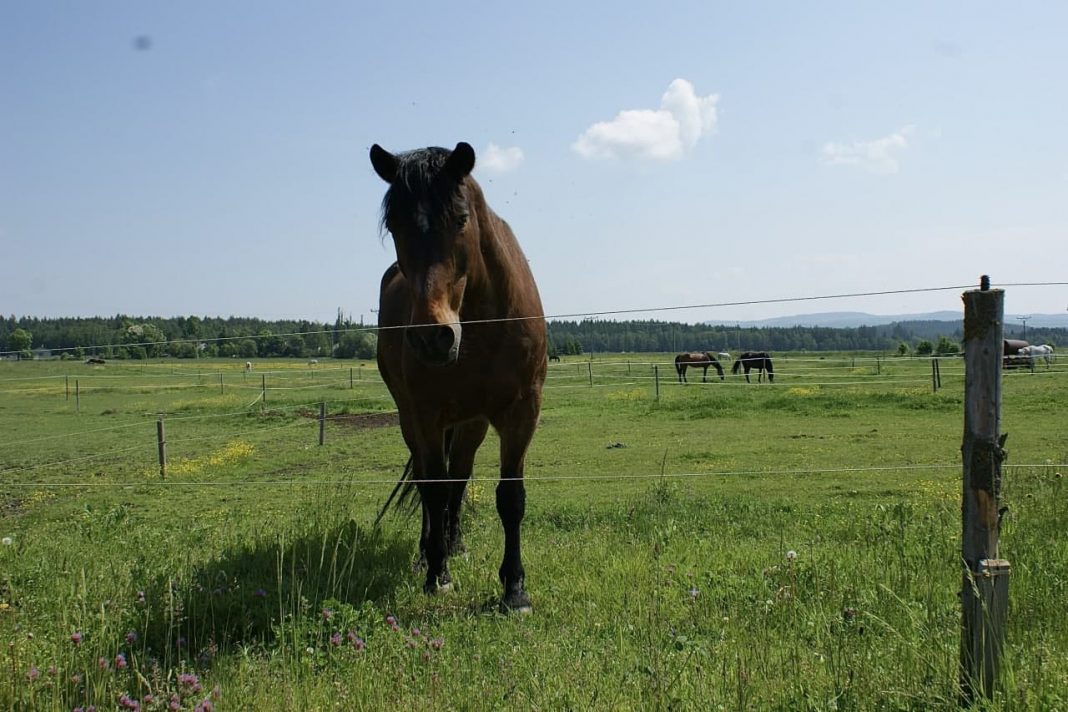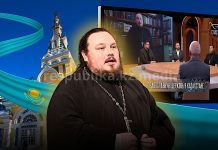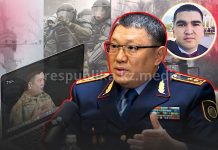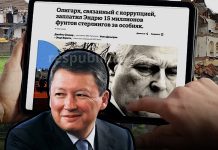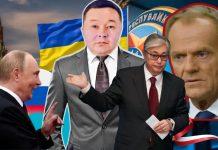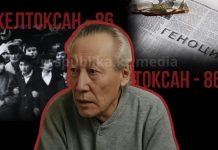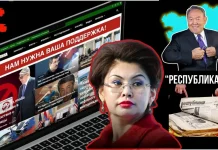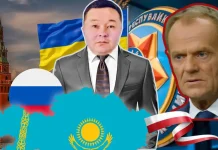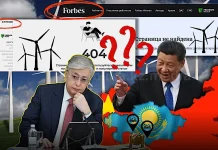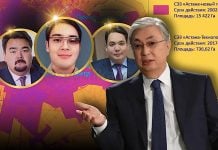Buying real estate abroad for the purpose of money laundering and escaping criminal prosecution is a favoured modus operandi of governmental officials and entrepreneurs from the post-Soviet countries including Kazakhstan. The USA, the UK, Switzerland, Italy, Spain and France are usually listed as popular locations for investing money in palaces, luxurious cottages and apartments. However, it was the Czech Republic that caught our attention. Several decades ago, this country was quite popular among the Kazakh citizens in search of a “safe heaven”. And there is a good reason why.
The reporters involved in the Organised Crime & Corruption Reporting Project (OCCRP) say that, in terms of the number of dirty investments, the Czech Republic is undoubtedly one of the top ten states. According to the calculations of the Czech Centre for Investigative Journalism (CCFIJ), the volume of the funds accumulated in Czechia as part of the large-scale operation on moving capitals from Russia (Troika Laundromat) constitutes 232 835 724 euro.
In terms of the scale of the investments, Kazakhstan certainly cedes ground to Russia and Ukraine. Nonetheless, Kazakh investments in Czechia exist. In collaboration with the colleagues from the CCFIJ, we have established which of the Kazakh officials, representatives of the law-enforcement agencies and businessmen of the “inner sanctum” tied to the top of the ruling elite have business-assets and real estate in the Czech Republic (mainly in Karlovy Vary and its surroundings). We have also tried to assess the transparency of the origins of the funds invested in these assets.
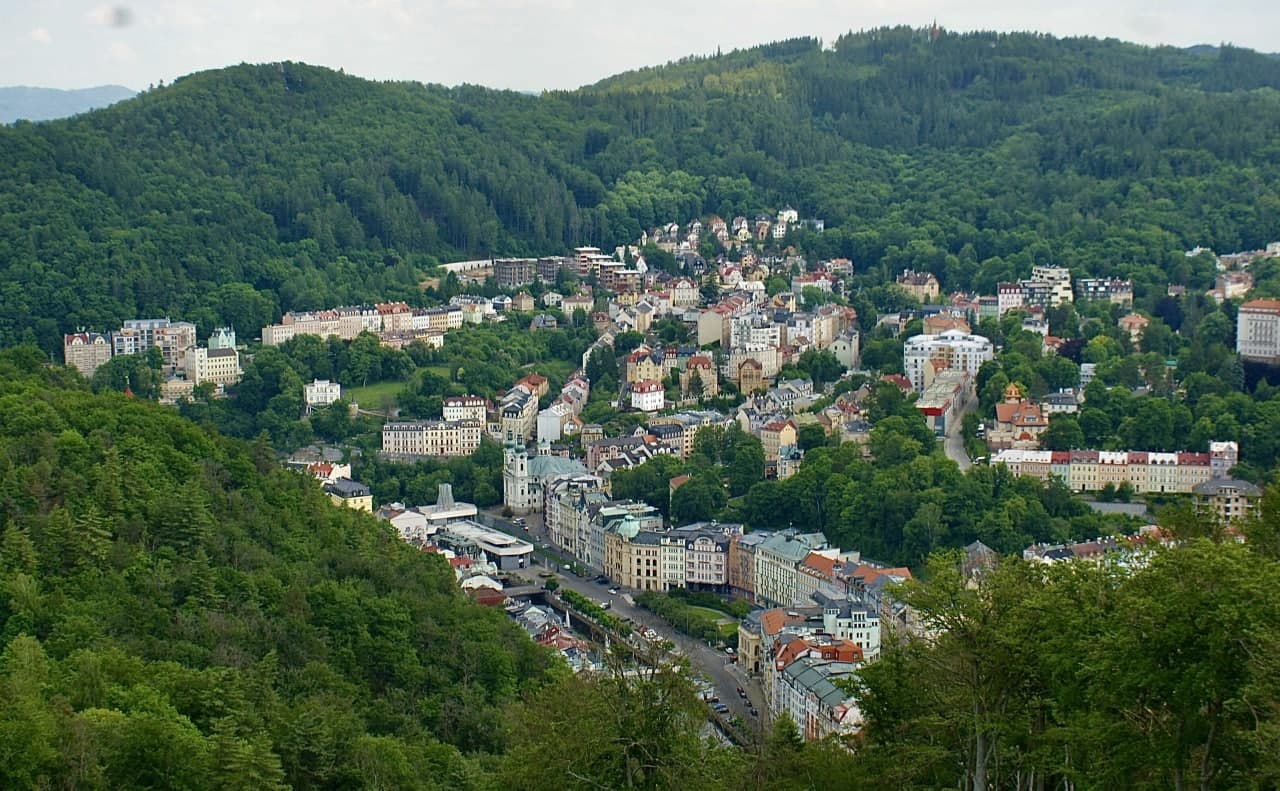
Why Czechia?
Why is it the Czech Republic that’s become a preferred country for dubious investments from the post-Soviet states? To answer this question, let’s reminisce.
Not a single Eastern European state had undergone the period of the transformation from the Soviet model of governance to the classic republican one as easily as Czechoslovakia. The first (few) acts of protest that took place in 1988 were broken up by the police, however, the first large-scale student demonstration of November 17, 1989, had dramatically changed the balance of power. And the country met the year1990 with a new president. On December 29, 1989 Vaclav Havel, a dissident, a human right advocate and a leader of the political opposition was elected President. No one had been seriously injured during the street protests; as a result, the term “Velvet Revolution” saw the light of day. Strictly speaking, there were two terms: the Czech one — Sametová revoluce, and the Slovak one — Nežná revolúcia.
Considering that the history of the relationship between the two republics as a single state had been quite complicated, the sceptics were holding their breath and waiting for a rocky divorce. Alas, they waited in vain. As a result of a peaceful referendum, the federation of the two Slavic peoples had been divided into two states and, on January 1, 1993, two counties celebrated the coming of the New Year – the Czech Republic and Slovakia. Therefore, the “Velvet Revolution” was followed by the no less velvety divorce.
The two consecutive transformations seemed a true political miracle. The country’s further development had confirmed the most optimistic forecasts and, very soon, Prague became known as “a second Paris”. This name was given to it by Americans who knew “the first Paris”, the capital of France, an inexpensive and, at the same time, cultured city.
It was then when the Czech Republic started being flooded by tourists who, given the desire and a small original capital, could easily stay there permanently. It was applicable not only to the rich people from the New World but to the natives of the former USSR as well.
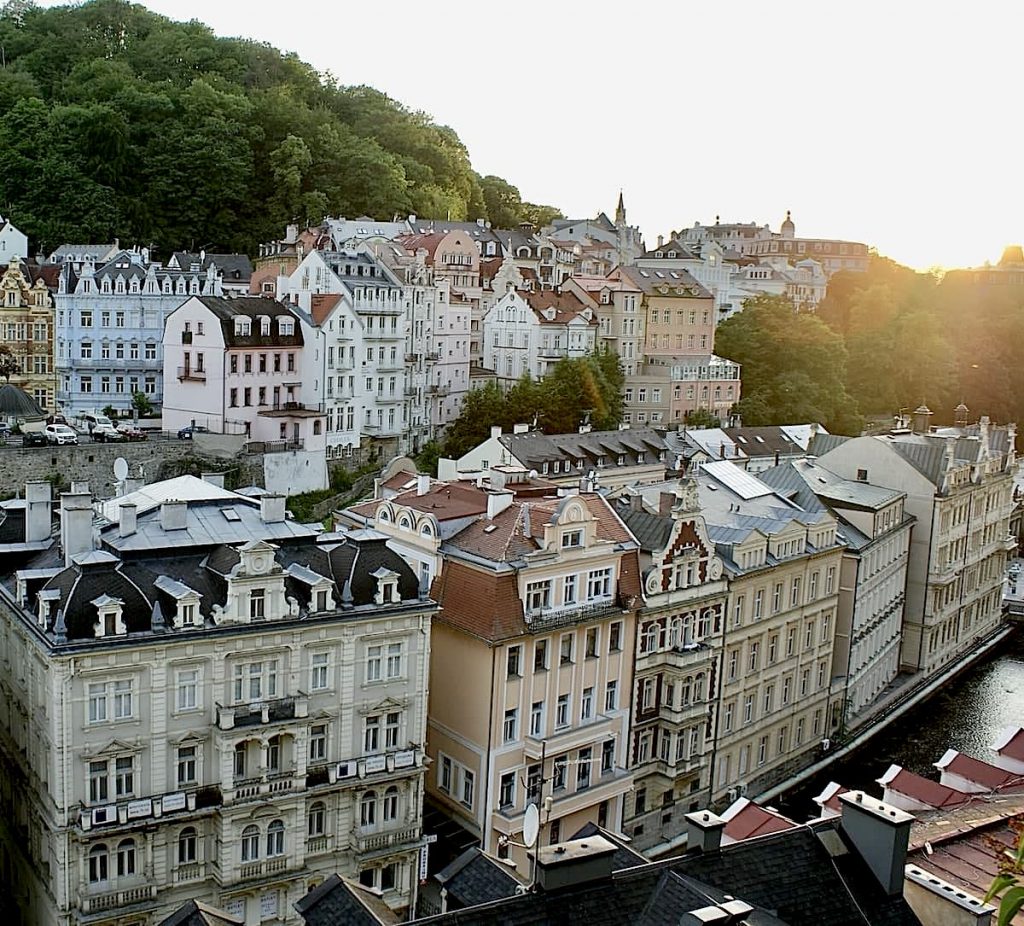 Back then, obtaining the residence permit in the Czech Republic was easy. To do so, one needed to register a company with a small capital (200 thousand korunas as we have been told which, at that moment, constituted 7.5 thousand euro). This would allow one to first obtain the temporary residence permit for the term of two years and, in a five-year time, the full-value residence permit. In other words, the whole operation required the desire and very modest funds. After obtaining the residence permit, one could visit the country at any given moment and for any period of time, comfortably rest in Karlovy Vary, admire the beautiful and clean cities – all this for a reasonable price and with a low (even for Europe) level of red tape.
Back then, obtaining the residence permit in the Czech Republic was easy. To do so, one needed to register a company with a small capital (200 thousand korunas as we have been told which, at that moment, constituted 7.5 thousand euro). This would allow one to first obtain the temporary residence permit for the term of two years and, in a five-year time, the full-value residence permit. In other words, the whole operation required the desire and very modest funds. After obtaining the residence permit, one could visit the country at any given moment and for any period of time, comfortably rest in Karlovy Vary, admire the beautiful and clean cities – all this for a reasonable price and with a low (even for Europe) level of red tape.
Replying to our question why, at the start of the 21st century, the Czech Republic has become such a popular country for investors from Central Asia, investigative reporter Mikhail Maglov confirmed —
”PRIOR TO 2020, PURCHASING REAL ESTATE/REGISTERING A COMPANY IN MANY EASTEN EUROPEAN STATES ALLOWED YOU TO OBTAIN THE RESIDENCE PERMIT WHICH GAVE YOU ACCESS TO THE OTHER COUNTRIES OF THE SCHENGEN AREA”.
In other words, to those who wanted to move their funds from the post-Soviet states, it was easier to build a base in one of the Eastern European counties and then, if necessary, move it to the West.
Another important aspect is the Russian language. During the years of the investment boom, many residents of the country spoke Russian which was convenient for the comers from Central Asia. Apart from that, Czechia was often considered an inexpensive means to educate one’s kids in a European country.
There was yet another factor at play – during the years when the CIS citizens started actively buying real estate in the Czech Republic, the financial authorities did not investigate the origin of the funds very thoroughly.
”AS A RULE, SUCH INSPECTIONS IN THE EU ARE OF A NOMINAL NATURE, EVEN TODAY. THE MAIN FACTOR HERE IS THE BANKS’ POLICY OF “KNOWING YOUR CLIENT” THAT OFTENTIMES IS LIMITED TO CHECKING THE DATA ON PUBLIC OFFICIALS. SUCH DATABASES CONTAIN LITTLE INFORMATION WHEN IT COMES TO FORMER USSR, ESPECIALLY REGARDING THE RELATIVES OF THE OFFICIALS. IF THE BANK UNVEILS SOME SUSPICIOUS TRANSACTION, IT FREEZES IT AND HANDS OVER TO THE FINANCIAL AUTHORITY, HOWEVER, THIS DOESN’T HAPPEN OFTEN”.
All in all, Mikhail Maglov believes that the EU policy has changed around the years 2017 – 2020 when a number of countries abandoned the practice of giving out temporary residence permits based on registering a company or purchasing real estate, or raised the prices for real estate in a significant way. The reason, he believes, lies in the investigative reports.
”IN THE UK, FOR INSTANCE, THIS HAPPENED AFTER THE RELEASE OF THE FILM TITLED “FROM RUSSIA WITH CASH”. THE CHANGES ALSO TOOK PLACE AFTER PUBLISHING OF THE RESEARCH ON “THE GOLDEN PASSPORTS” AS WELL AS THE MURDER OF MALTESE JOURNALIST CARUANA GALIZIA WHO HAD BEEN INVESTIGATING THE TRANSIT OF THE DIRTY MONEY”.
Taken together, these things have resulted in several dozens Kazakh officials, employees of law-enforcement agencies, entrepreneurs with dubious reputation and/or their family members (the whole family clans one may say) owning assets on the Czech soil.
Why is this important?
Because they often move the assets whose legality is dubious.
Proving the transparency of the money origin is hard for practically all of the rich Kazakhstan’s natives. First of all, because of the fact that state power has been privatised by rogue entrepreneurs. In other words, in Kazakhstan, people who do not exercise public functions and proclaim themselves private entrepreneurs often have more weight and opportunities than governmental officials of the highest rank just because the former are close to the No.1 Family of the country. Second of all, there is the non-transparency of the process of initial accumulation of capital in Kazakhstan that took place in 1990s.
In the opinion of Director of the Kazakhstan International Bureau for Human Rights and the Rule of Law Evgeny Zhovtis, this process was nothing but the division of the former public property. The elite ruling the country at that time, in other words, the representatives of the highest party echelon, the “red directors”, the top officials of the ministries and governmental agencies, their friends and relatives that later became their business-partners were the main beneficiaries of the said division. The human rights advocate believes that this process was illegal and illegitimate. Partly, due to the holes in the legislature, partly – simply because it was nothing but theft of a garden variety.
”Back then, they had already introduced the scheme that is still being used today – being close to power and power itself serve as a source of becoming rich. In these circumstances, fighting corruption is very hard because, normally, this is a fight between an official and a businessman while, in our country, the official is the businessman.
Therefore, the investigation you are conducting has its historic roots and problems. The economic constituent is ensured by the political constituent. Because, in order to preserve and ensure the safety of the assets, it is necessary to guarantee the possession of power and the control over all the law-enforcement structures, the courts etc. Otherwise, if they start investigating how it was, many may fall”, — explains Evgeny Zhovtis.
Incidentally, the First President of the Republic of Kazakhstan Nursultan Nazarbayev acknowledged the instances of moving assets from the country several years ago. In December 2017, during the nation-wide televised Q&A session titled “The New Industrialisation of the Country: The Jump of the Kazakh Leopard”, he lashed out at the representatives of the top-management of the governmental companies.
”STOP INDULGING YOURSELVES, YOU’VE BEEN PLAYING FOR TOO LONG. IT’S ENOUGH. THEY’VE BOUGHT YACHTS, THEY OWN COTTAGES AND HOUSES ABROAD. WE HAVEN’T INVESTIGATED ANYONE YET, WE WANTED TO GIVE THEM AN OPPORTUNITY TO EARN MONEY. BUT DO NOT FORGET IT IS THE COUNTRY THAT HAS GIVEN YOU EVERYTHING (…) WE HAVE HAD THREE LEGALISATIONS, HAS ABYONE BEEN DISTURBED? HAS ANYONE BEEN HELD RESPONSIBLE? NO ONE. YOU WILL LOSE THE MONEY YOU ARE KEEPING ABROAD, DON’T YOU SEE? IN THE AGE OF THE SANCTIONS, NO ONE IS GOING TO HELP YOU. TRANSFER BACK THE MONEY AND KEEP IT IN KAZAKHSTAN”.
However, the matter hasn’t moved any further. Even today, so many years after the legalisation of the private property, the Kazakh laws bear the mark of “the transition period”.
As recently as December 19, 2020, the second (current) President Kossym-Jomart Tokayev signed the law that prohibits governmental officials from opening and owning bank accounts abroad. Nonetheless, this ban is not applicable to all the categories of governmental officials; only to the “persons holding a position of the highest state importance and the persons authorised to perform governmental functions”. Moreover, the law does not prohibit owning bank accounts abroad to the officials’ relatives. “After all, we are living and working in the market economy”, explains Olzhas Bektenov, Deputy Chairman of Kazakhstan’s Anti-Corruption Agency.
Tokayev’s admission that an official should have room for error that the President’s made at the meeting devoted to electing rural akims sounds even more conciliatory. In Tokayev’s opinion, if an official makes a mistake without intending to embezzle the budget funds and try to become rich, this official should not be prosecuted. Otherwise, the President is certain, the Kazakh state may become paralysed.
In the context of the authoritarian political system, this “opinion”, at the very least, would mean making it more difficult for the law-enforcement agencies to prove the existence of such intention. Basically, the peculiarities of the Kazakh legislature described above help creating “the grey zone” when the assets appropriated in Kazakhstan may be found legally obtained by the Kazakh law, however, from the standpoint of any legislature of any European country, they would be deemed “misappropriated”.
And even if lawyers manage to prove the legality of the assets in a formal way, this should not be considered an absolution since, at any given time, new evidence may surface, new laws may be passed, new discontented partners may appear. And then there is a chance that the entire fortunes will be lost.
Investigating the fortunes of the officials is necessary and important, Evgeny Zhovtis believes.
”IF ONLY BECAUSE THE CITIZENS OF THE COUNTRY — THE SOURCE OF OBTAINING POLITICAL POWER THROUGH ELECTIONS AND THE SOURCE OF OBTAINING ECONOMIC POWER THROUGH TAXES THAT SHOULD BE USED FOR EVERYONE’S WELLBEING – HAVE THE RIGHT TO KNOW EVERYTHING RELATED TO MISCONDUCT IN EITHER THE POLITICAL OR THE ECONOMIC SPHERE”.
In his opinion, “no one has abolished social equality that can be ensured through such investigations. And even though it is basically impossible to hold responsible everyone who should be held responsible, in order to “begin living honestly on Monday”, one must do something about it today – for everyone’s wellbeing”.
Karlovy Vary and the Kazakh “golden MQs”
Karlovy Vary is the “arena” of our investigation. Our colleague Asem Tokayeva has visited this resort spot after the last quarantine restrictions have been lifted.
…Nearby the Mill Colonnade with the mineral water springs (a local attraction), you will see announcements written in Russian. They offer apartments in the city’s centre, as a rule, expensively furnished and in a good condition.
One such apartment with two bedrooms, a terrace, a high ceiling, luxury chandeliers and a fully-equipped kitchen in a single living-room costs 400 thousand euro (already with discount).
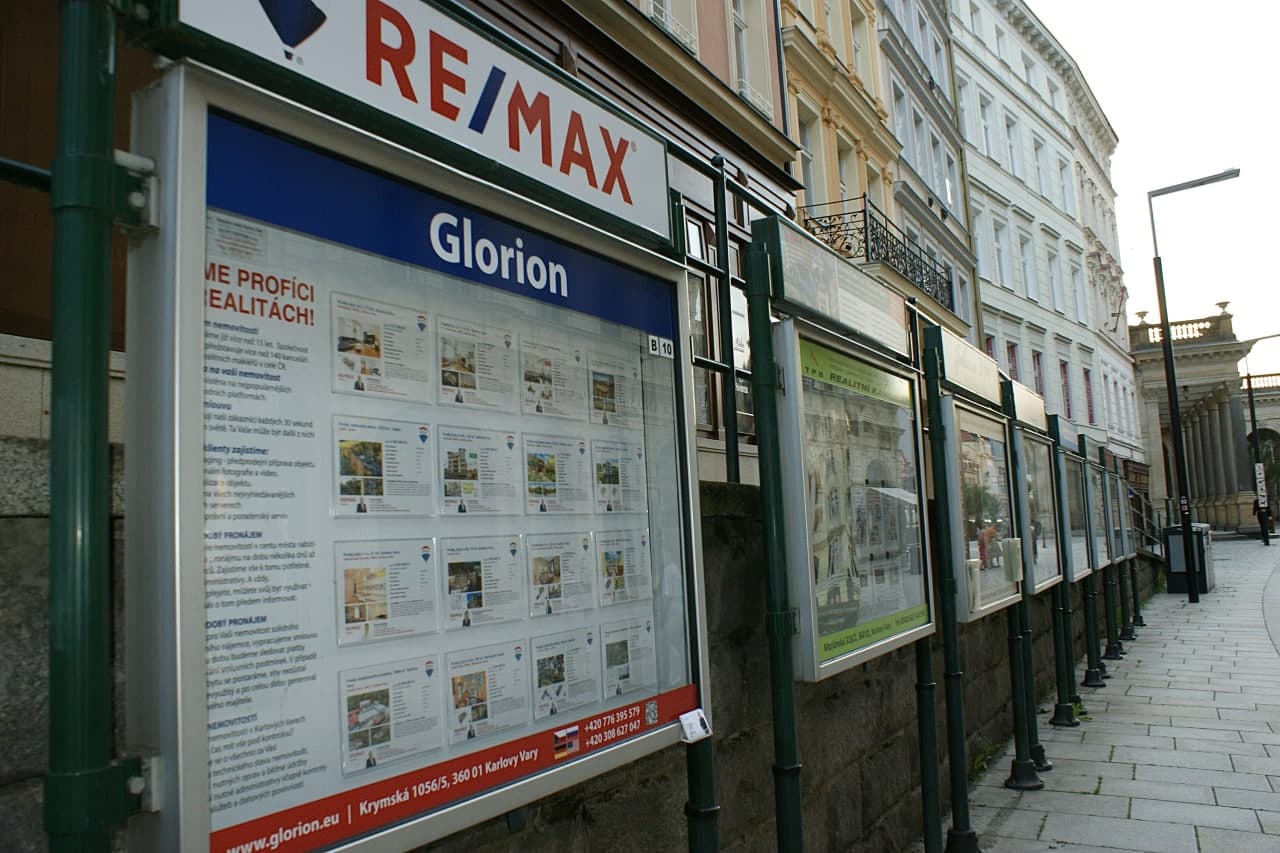
It’s a place where every smart Czech has their “own Russian”, they say sometimes about Karlovy Vary in Czechia. (Karlovy Vary is a resort in the western part of Bohemia that was popular among the 19th century tourists thanks to its hot springs). By “Russian” they mean any Russian-speaking person from the CIS countries.
The saying means that, in Karlovy Vary, any Russian-speaking person is perceived as a client who is willing to spend more than any other tourist.
Owing to the funds invested in the city’s economy by the Russian-speaking investors, they have reconstructed the resort area that, prior to this, was suffering from the deficit of the local capital.
Even now, during the outflow of a certain number of investors from this Czech resort, it remains an enclave for the natives of the former Soviet Union in Czechia.
This is not surprising, for Karlovy Vary is attractive to the Russian-speaking folks due to historic reasons as well. Peter the Great used to visit this place, Alexey Tolstoy and Yuri Gagarin used to rest here. Many say their grandparents used to visit it.
When a diplomatic conflict flared up between the Czech Republic and Russia at the start of 2021, the real estate owners from Russia began calling the local realtors to confirm that they won’t lose their apartments.
The realtors recall that, in 2008-2009, when foreigners were buying real estate in Karlovy Vary on a massive scale, the price of a square meter in a newly-built or luxury house would reach up to 3.5 or 4 thousand euro. At the secondary housing market, the price of a square meter constituted up to 1.5 thousand. Inclusive of renovations, an apartment would eventually be sold for 2.5 thousand euro per square meter.
Alexandr Mizjuk, the owner one of Karlovy Vary’s biggest real estate agencies Re/Max Glorion, explains the popularity of this city’s real estate by the resort’s convenient location.
”THE CITY IS VERY CONVENIENTLY LOCATED, ITS GEOGRAPHY IS VERY INTERESTING. IT’S SITUATED ONLY 400 KILOMETRES FROM VIENNA, 300 KILOMETRES FROM MUNICH, 400 KILOMETRES FROM BERLIN. YOU TRAVEL ABOUT 1000 KILOMETRES AND YOU ARE ALREADY AT THE SEASIDE, IN ITALY”.
Nonetheless, according to his observations, the purchasing power of the investors has begun to decrease. For the Russian citizens, it started after the onset of the Ukrainian conflict in 2014 due to the annexation of Crimea as well as because of the related European sanctions against Russians. The investor eagerness of the Kazakh citizens has also been reduced as a result of the tenge devaluation.
The COVID-19 pandemic has only intensified this trend. Real estate has stopped being a profit-generating asset. The daily rent market has collapsed while the long-term rent market has been reduced by half.
”TODAY, HOUSES AND APARTMENTS COST ABOUT 30-40% LESS THAN BEFORE. IN THE NEWLY-BUILT HOUSES, THE PRICE OF A SQUARE METER CONSTITUTES ABOUT 2 THOUSAND EURO, IN THE LUXURIOUS NEWLY-BUILT HOUSES – 3.5 THOUSAND EURO. BUT THE LUXURY REAL ESTATE MARKET IS VERY INERT, IT IS STANDING STILL. THERE IS NO EXTERNAL BUYER. AT THE SAME TIME, THE PRICES ARE VERY HIGH FOR THE LOCALS”.
The hotel and restaurant business has also not yet recovered from the unwanted idle time related to the quarantine. Because of the pandemic, the residences in Karlovy Vary have been staying empty for almost two years and have become a burden to their owners. For instance, according to the estimates of the local brokers, the price of keeping an 80-90 MQ apartment in order constitutes 150-200 euro per month.
Alexandr Mizjuk summarises —
”OLIGARCHS, BUSINESSMEN, GOVERNMENTAL OFFICIALS FROM THE CIS COUNTIES ARE NOT INVESTING IN KARLOVY VARY, THEY ARE SELLING. THE KAZAKHS ARE DOING THE SAME, TOO. THERE HAS BEEN A LOT OF REAL ESTATE SELLING TRANSACTIONS. THIS YEAR ALONE, I HAVE SOLD FOUR APARTMENTS OWNED BY THE KAZAKHS. INEXPENSIVE REAL ESTATE SELLS WELL. LUXURY REAL ESTATE SELLS ONLY AT A GOOD DISCOUNT. THE CZECHS ARE WILLING TO BUY APARTMENTS THAT HAVE BEEN MARKED DOWN, UNDERGONE EXPENSIVE RENOVATIONS AND ARE LUXURIOUSLY FURNISHED”.
Nowadays, many buildings in the city are covered with sales advertisements.
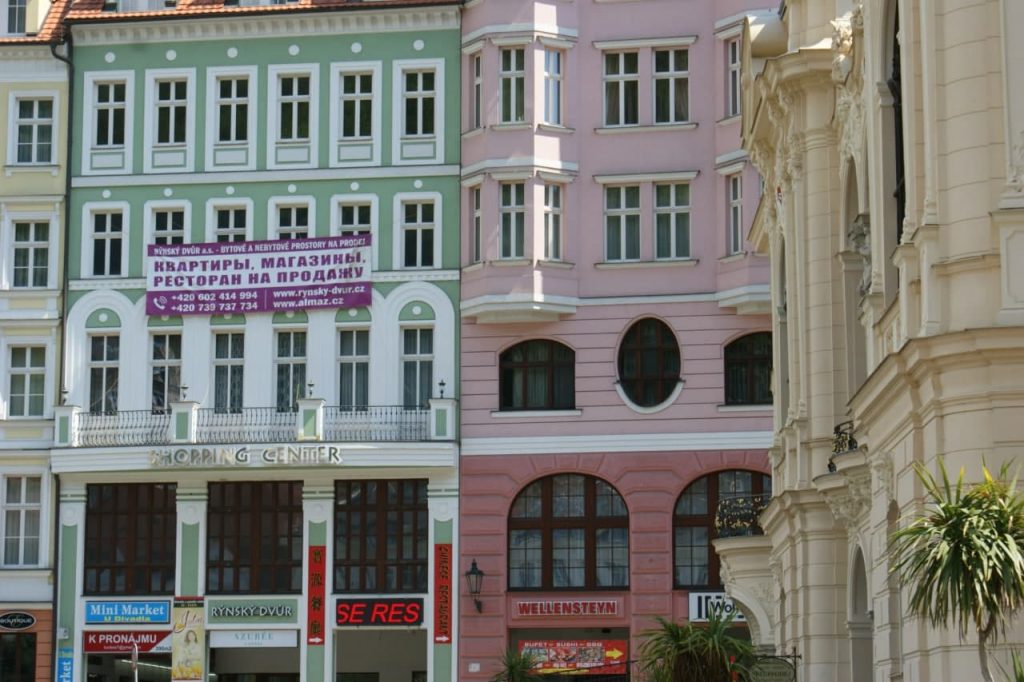
The Czech public realty database — sreality.cz – offers more than 700 apartments and about 200 houses in Karlovy Vary and its suburbs. For instance, a beautiful renovated villa (up to 900 MQ) with stained glass windows and a large garden, located near the resort area, is offered for 629 thousand euro or less. A regular family house (up to 350 MQ) nearby the city can be bought for 200-250 thousand euro.
Even though, these days, Karlovy Vary noticeably livens up on weekends, quite a few hotels is still staying empty. They are looking at the world through their dark windows with a silent reproach as if a tombstone for the COVID victims.
On the other hand, Nursultan Nazarbayev is looking at the world proudly from his portrait.
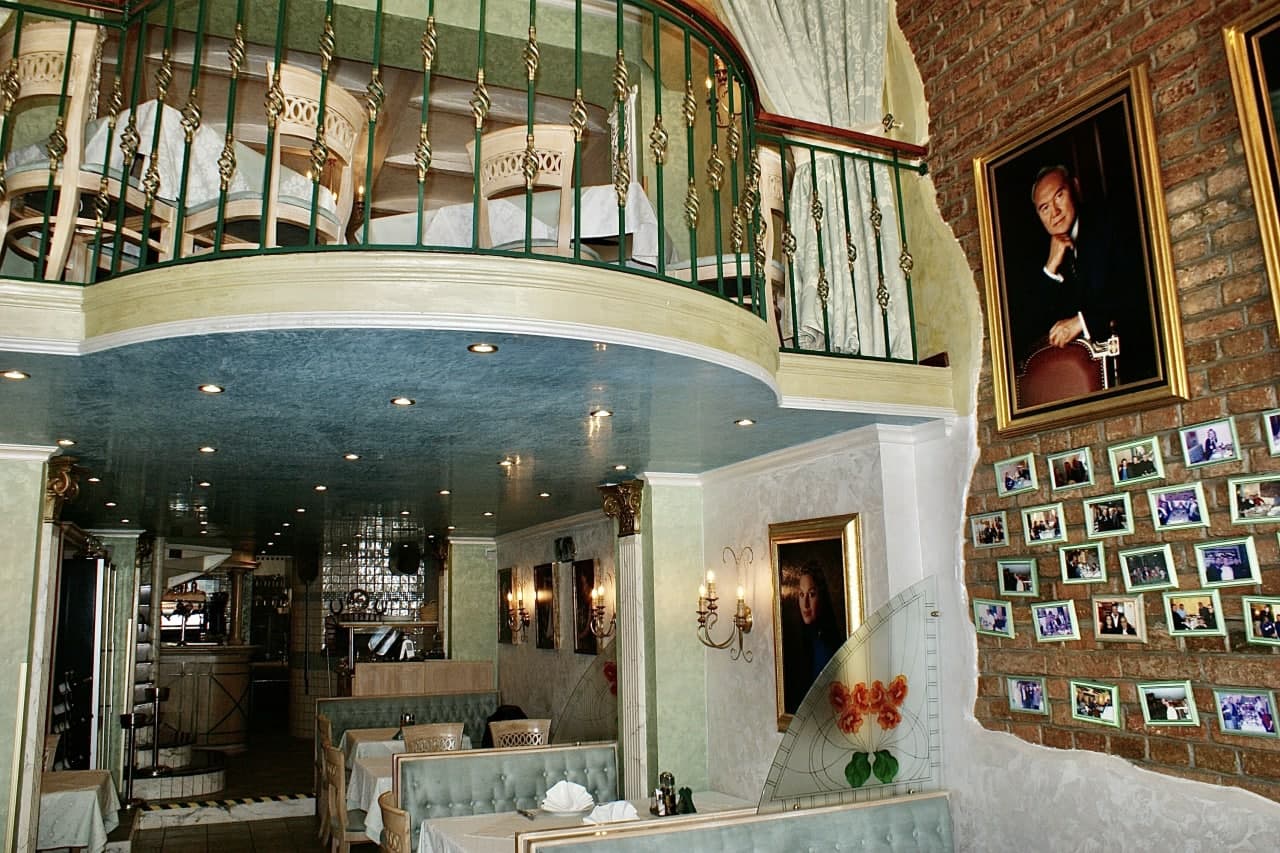
The portrait of the First President of Kazakhstan as a young man is hanging in a prominent place at an expensive Italian restaurant on Stará Louka street in the tourist centre of the Czech resort. Nursultan Nazarbayev belongs to the most venerated visitors whose portraits are bigger and better than his.
In Karlovy Vary, Nursultan Nazarbayev used to stay at the Ahlan villa built at the end of the 19th century. This villa is considered a cultural and an architectural monument. The building erected in the Baroque style is situated on Sadova street, 53.
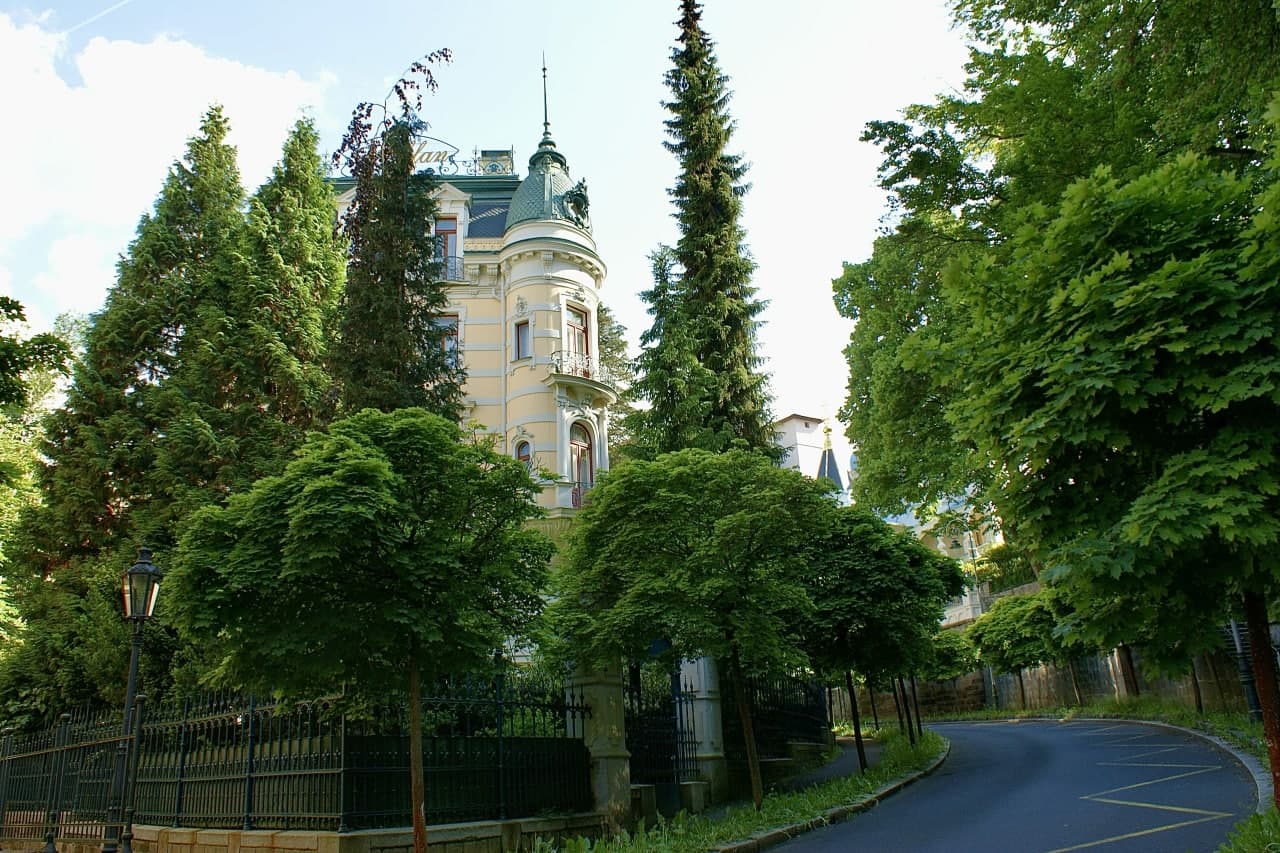
In the close proximity to the Ahlan villa, there is a four-star hotel called Mignon (Sadova, 55). The buildings are connected by a passage with a wrought fence door.
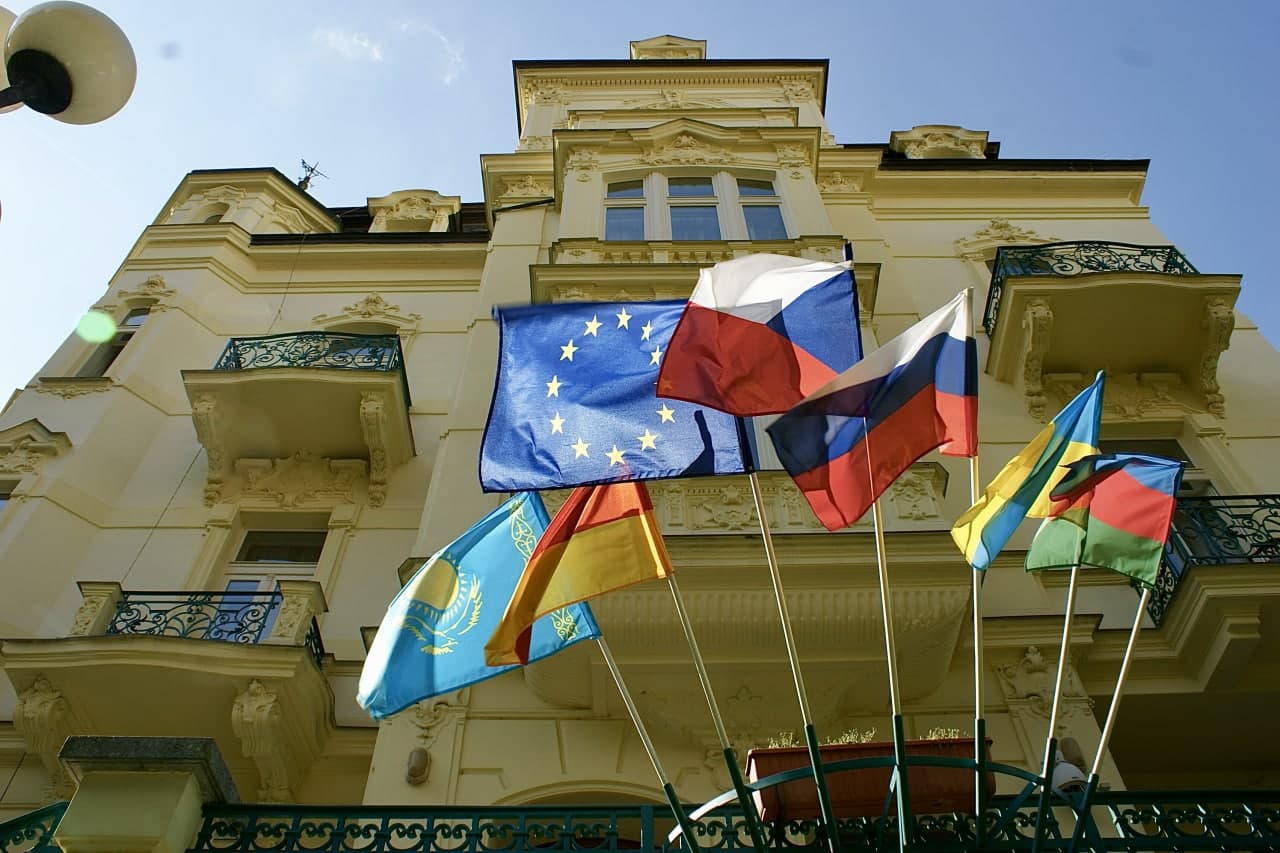
The two properties have the same owner – company Mignon-II affiliated with a Kazakh citizen.
Kayrat Boranbayev whose daughter Alima, in 2003, married Aysultan Nazarbayev, the late grandson of the First President of Kazakhstan, is listed as the company’s owner.
Sadova street consists mainly of spa retreats and hotels. During the COVID-19 pandemic, a four-star hotel Eliska (located across the road from hotel Mignon) was sold at a reasonable price. The hotel has 26 rooms and provides health services. It was sold for 2.7 mln euro while, prior to the pandemic, its price constituted 4.5 mln euro.
The sale of a luxury hotel Pupp (228 rooms) is the most high-profile recent real estate deal. The hotel used to serve as the venue for the Karlovy Vary international film festival. Many know this hotel from “Casino Royale”, a 2006 James Bond movie. The exact value of the transaction remains a mystery albeit some say it is a seven-figure sum in euro. Allegedly, it has been bought by a company affiliated with top-officials from the Russian government.
When our colleague asked if she could rent a room at the Ahlan villa, a Mignon administrator replied, in a somewhat frightened manner, that it is intended for a private use only. On the other hand, a mere mortal can rent a room in the Mignon hotel. It has 8 suits and 6 doubles.
When the quarantine restrictions were lifted at the beginning of the summer 2021, a standard bed and breakfast double would cost 166 euro per two nights.
Let us venture a guess (perhaps not an entirely valid one) that the profits from the Mignon hotel business are being used to maintain the luxurious Ahlan villa that, nowadays, does not receive its venerated owners and their guests too often. Yet, according to the Czech press, President Nursultan Nazarbayev used to love spending his vacations there. In 2004, after the “Orange Revolution” in Ukraine, he even invited the then already former Ukrainian President Leonid Kuchma to visit him there.
The villa and the hotel owned by Mignon II are situated in an elite and attractive (from the investment standpoint) district. They are facing the Russian Orthodox Church of Saint Peter and Paul; the Russian Consulate is located nearby. The “Embassy of Beauty” is being advertised along the road – this vicinity is popular among tourists as a skin care and plastic surgery resort. According to our insiders, the eldest daughter of the First President of the Republic of Kazakhstan Dariga Nazarbayeva used to visit Karlovy Vary to “preen her feathers” quite often.
Hotel Corso (Stará Louka street, 460/38) is situated nearby the restaurant with the portrait of Nursultan Nazarbayev on the wall. It is owned by Zelina Katranova. Her daughter Diana is married to Altay Kulibayev, Nursultan Nazarbayev’s grandson by his daughter Dinara and Timur Kulibayevs.
The hotel looks stylish and well-cared for. Albeit, at the beginning of June, it was closed. When attempting to rent a room, our colleague was informed by its website that the hotel would begin receiving visitors starting from June 15. A woman from a nearby shop said that the hotel had undergone renovations prior to the pandemic and now it is an expensive boutique-hotel. Judging by its website, its rooms are priced higher than Mignon’s. A standard double in Corso would cost you 150 euro a day.
WE WILL TELL THE STORY ABOUT THE ASSETS OF THE NAZARBAYEVS IN KARLOVY VARY SEPARATELY
Other Kazakh citizens are also present among Karlovy Vary’s real estate owners. The Czech cadastral registries include dozens of different real estate assets they own.
Nurlan Dzhaynakbayev is one of the lucky proprietor of real estate in the city. As the head of non-commercial education establishment KazRossmeduniversitet, he holds a joint patent of invention with Dariga Nazarbayeva.
WE PRESENT THE story about NURLAN DZHAYNAKBAYEV’S REAL ESTATE ASSETS IN this ARTICLE
A deputy of the Karaganda municipal maslikhat also owns an apartment located in a high-end district of Karlovy Vary. Incidentally, Eldon Zhunusov is a member of the anti-corruption public council at the Karaganda branch of the Nur Otan party.
WE PRESENT THE story about ELDOS ZHUNUSOV’S REAL ESTATE ASSETS IN this ARTICLE
Vladimir Pak, former deputy of the Atyrau regional maslikhat, ex-Chairman of the Atyrau branch of the Atameken National Entrepreneurs Chamber, the head of the Korean cultural centre at the Atyrau region, also owns an apartment in the city. His name came into the spotlight in a corruption-related scandal associated with former akim of the Atyrau city Bergey Ryskaliyev.
WE WILL PRESENT THE story about VLADIMIR PAK’S REAL ESTATE ASSETS SEPARATely
Our colleague has also visited the Kolova village (about 10 kilometres from Karlovy Vary).
The “population” of this area that the locals call “the Kazakh village” consists of high-rank Kazakh siloviks, former governmental officials, the people from the Forbes list. Once the list of the owners of the land and houses here was quite impressive; now it’s become several times shorter. The crisis!
This article opens a series of publications related to investigating the real estate assets of the affluent Kazakh citizens in Czechia.
FOLLOW OUR STORIES!
Our investigative team: Nazira Darimbet, Alexey Tikhonov, Asem Tokayeva. With contributions from other KZ.media reporters. In partnership with investigace.cz
In Russian click here

